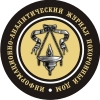Legal issues
This article, although in English, is generally aimed at Russian citizens in Russia and takes into account Russian law.
Our clients often ask: "Is cryonics legal in Russia"? Answer: YES.
Cryonics is legal in Russia - a person has the right to determine the conditions of his/her preservation after death. Laws do not prohibit preservation of a frozen body or brain in Russia for scientific purposes, and cryonics is a scientific experimental procedure.
KrioRus Ltd. is a research organisation, which, according to its Charter and Federal Law 127-FZ has the right to engage in scientific research and experiments, including in the field of cryonics.
Тем не менее, так как крионика пока не слишком известна, могут возникать некоторые сложности. Хотим сообщить сторонникам крионики, что если вы нуждаетесь в юридической защите своего права на продление жизни, в том числе - на крионику, то можно связаться с Адвокатской конторой "Последний дозор", сотрудники которой помогут Вам.
The main objectives of the legal development of cryonics are:
- Promotion of human rights ideas;
- Advocacy of the right to life and the right to prolong life through advanced and future technologies;
- Education on the right to prolong life through advanced technologies and future technologies;
- Ensuring the right of access of citizens to information on advanced technologies with the aim of prolonging life, eliminating suffering, ageing, death, Further significant enhancement of physical, mental and psychological capabilities of the human being;
- Full support for the establishment and development of the human rights movement and the establishment of democracy;
- Collecting, compiling and analysing information on violations of the human right to life and the prolongation of life through the use of available advanced technologies;
- Contributing to the improvement of the mechanism for ensuring and protecting human and civil rights and freedoms;
- Strengthening international and interregional cooperation in the area of ensuring and protecting human rights and freedoms;
- Legal education on human rights and freedoms and the forms and methods of their protection.
Some legal issues to be aware of
When autopsy refusal is possible
A pathological-anatomical autopsy must be performed if the patient dies in hospital. The autopsy can be waived upon written request of relatives or at the will of the deceased, expressed by him/her during his/her lifetime. A forensic medical examination is mandatory if the person died from:
- mechanical injuries;
- poisoning, including ethyl alcohol;
- mechanical asphyxia;
- extreme temperatures;
- electricity;
- the consequences of an induced abortion performed outside a medical institution.
- failure to establish a final clinical diagnosis of the disease that led to death;
- suspected overdose or intolerance of drugs or diagnostic preparations;
- In cases of death:
- associated with preventive, diagnostic, instrumental, anaesthetic, resuscitation, therapeutic measures;
- during or after a blood transfusion operation;
- from infectious disease or suspected infectious disease;
- from oncological disease in the absence of histological verification of the tumour;
- from a disease associated with the consequences of environmental disasters;
- pregnant women, women in labour and childbirth (including the last day of the postnatal period);
- newborns.
- consent or disagreement to be subjected to a pathological-anatomical autopsy (explanation from KrioRus: in case a future cryopatient dies in a hospital, it is necessary to submit a corresponding application to the chief physician in due time);
- to consent or not to consent to the removal of organs and (or) tissues from his/her body (explanation from KrioRus: in case the future cryopatient dies in the hospital, it is necessary to submit the relevant application to the chief physician in due time);
- to be buried in a certain place according to certain customs or traditions, next to certain previously deceased persons; (clarification from KrioRus: cryonisation is a scientific experiment, however, the question whether in some cases cryonisation can be interpreted as "customary burial" remains open);
- to be cremated;
- on trusting a person to fulfil his or her will.
- the reality of the fulfilment of the expressed will;
- respect for the interests of other citizens in terms of fulfilment of their will or the will of the persons they represent;
- requirements imposed on funeral matters by legislative, regulatory documents and international agreements.
Some curious facts:
The wish to be buried next to the previously deceased, expressed in the last will, can be fulfilled only if there is a free plot of land or the grave of a previously deceased close relative in the specified place. If the deceased wished to be buried elsewhere, the possibility of fulfilling his will is determined by a specialised funeral service, which will take into account the place of death, the availability of a free plot of land at the specified place of burial, compliance with sanitary and epidemiological norms, the services of the deceased to society and the state.
The will of the deceased may be set out in a written notice to relatives, his legal representatives or other persons who have assumed the obligation of his burial. In this case, witnesses of the oral will of the deceased must confirm his will in writing to the representative of the specialised service for funeral affairs.
- surviving spouse;
- children;
- parents (if they retain parental rights);
- adopted persons and adoptive parents;
- siblings (by mutual agreement);
- grandchildren (by mutual agreement);
- grandparents;
- other relatives;
- legal representative of the deceased;
- or, in their absence, any other person who has assumed the obligation to carry out the burial.
(Explanation of KrioRus: try to notarise your will). In case of significant discrepancy in the testimony of witnesses and relatives, the specialised service for funeral affairs has the right to apply to the local government body, and at its direction - to the court for the earliest possible resolution of the contradiction. The time of consideration of the case and issuance of a reply is not more than two days from the moment of application to the specialised service.
The organiser of the burial must carry out the entire process from the execution of documents to the assumption of responsibility for the burial place. If no one has assumed the responsibility for funeral arrangements, they are carried out by a specialised funeral service.










































